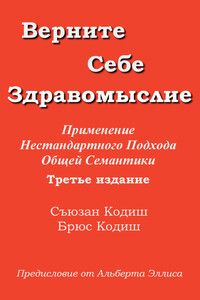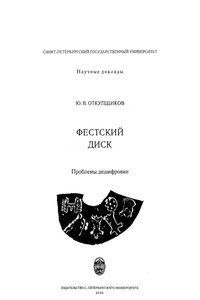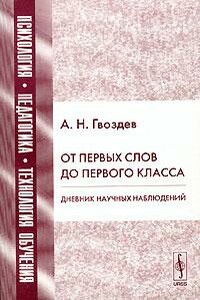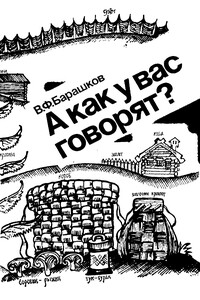Английский для умных - [27]
8) Are you neighbors washing their car?
9) What books does your brother like to read?
10) Are you cold?
11) Whose is this bag?
12) Are they having dinner now?
13) What do you usually do in the evenings?
14) What does this word mean?
15) Usually he does not have breakfast
16) How old are your children?
17) Where do your parents live?
18) How much does this shirt cost?
19) What are their names?
20) What is she doing now?
21) Does it snow often here?
22) Does he do sports every morning?
23) Is it raining now?
Глава 2
Упражнение 1
Once I was buying a new alarm clock when I saw a thief. I just paid for my watch when I saw an elderly woman, who was slowly putting a silver plate into the bag she was carrying. Then she went to the opposite side of the shop and took an expensive watch. She thought that nobody was looking at her and dropped it in her bag. Before I could tell the police about it, she noticed that I was watching her and hurried to the entrance. Unfortunately for her, two policemen were passing by and she ran right into them.
Упражнение 2
1) I was reading at this time yesterday
2) I read three books yesterday
3) I went to the cinema yesterday
4) I was going to the cinema when I saw my friend
5) She was working with documents all day
6) He was writing a letter all day
7) I finished my work at six
8) What were you doing yesterday in the evening?
9) Where were you yesterday?
10) When I was travelling around Europe, I bought many presents for my family
11) We were bathing in the river when it started to rain
12) They were drinking tea when I came home
13) When I came into the class, they were doing exercises
14) There were going to leave when they remembered that they forgot their tickets
15) When I met Tom, he was going to the shop
16) Where did you spend your last weekend? I was doing shopping
17) The moon was shining and the night was warm and pleasant
18) They seemed nice people and we were talking all night
19) What were you doing when it happened?
20) They invited me and I agreed gladly
21) He lost his keys when he was running in the park
22) She was writing an account when I left for the meeting
23) We were talking when he called
24) I did not hear what he said
25) I was listening to music when I remembered that I had to call her
26) The report was so boring that he was falling asleep while listening to it
Упражнение 3
1) Early in the morning I woke up and looked at the wakening city. The sun was shining and someone was talking in the yard
2) He was looking at the leaving train until it disappeared completely. He started to walk fast to warm up toward the city
3) Did they offer you a job?
4) They were talking about the weather and their plans for the Summer
5) He asked many interesting questions
6) He told his brother what he was doing in his absence
7) I was reading a book when he called
8) From three to five we were studying in the library
9) I was going down the road when I saw her
10) The sun was already setting when came to the village which was only a couple of miles from my native town. The working day was over and all the workers were coming back home. I approached a group of people and asked if I can find a place to stay for the night in the village. One old man agreed to help me. He took me to his house, which was at the end of the street. The fire was already burning in the stove, when we came in, and the hostess was dinner. Two girls were picking something up in the garden. The master offered to have dinner with them. They seemed very nice people and we were talking all night. After dinner we went to the garden. The night was warm, and the moon was shining brightly. We were walking for a long time until we finally went to bed
Упражнение 4
Aunt Polly was hoping that Tom would keep his promise and would not miss his lessons anymore. But the next say he found out that he missed again. «Do you want me to punish you, Tom?» asked aunt Polly angrily.
Aunt Polly decided to punish Tom and sent him to whitewash the fence. Tom was working very slowly at first, but when he noticed that Ben was approaching him, he pretended to enjoy the work. «What are you doing, Tom?» asked Ben. «Don’t you see? I am whitewashing the fence. It is a very interesting job». «Really? Give me the brush for a second. I will let you bite on my apple if you let me». «Sorry, Ben». Ben said that he would give Tom the whole apple if he gave him the brash. Tom agreed reluctantly. And while Ben was whitewashing the fence, Tom was sitting in the shade and eating the apple.
Глава 3
Упражнение 1
1) What’s happened? Why have you stopped?
2) Did you go anywhere last evening?
3) Have you eaten only one piece of cake?
4) Where were you yesterday? You were not at work?
5) We haven’t seen her for a long time
6) I saw her yesterday
7) Grandma and Grandpa have already visited their grandchildren. They went to see them last week
8) Have you ever been to Africa?
9) I went to Africa last year
10) The concert hasn’t started yet
11) The concert started 11 minutes ago
12) Wait for me, I haven’t taken the money
13) I have just had breakfast

В книге рассказывается история главного героя, который сталкивается с различными проблемами и препятствиями на протяжении всего своего путешествия. По пути он встречает множество второстепенных персонажей, которые играют важные роли в истории. Благодаря опыту главного героя книга исследует такие темы, как любовь, потеря, надежда и стойкость. По мере того, как главный герой преодолевает свои трудности, он усваивает ценные уроки жизни и растет как личность.

В книге рассказывается история главного героя, который сталкивается с различными проблемами и препятствиями на протяжении всего своего путешествия. По пути он встречает множество второстепенных персонажей, которые играют важные роли в истории. Благодаря опыту главного героя книга исследует такие темы, как любовь, потеря, надежда и стойкость. По мере того, как главный герой преодолевает свои трудности, он усваивает ценные уроки жизни и растет как личность.

«Верните Себе Здравомыслие» – это книга, которая объясняет базовые положения общей семантики более простым, кратким и доступным языком в сравнении с 900-страничной формулировкой Альфреда Коржибски – Science and Sanity, а также даёт множество полезных и простых рекомендаций для практики и применения принципов Общей Семантики в повседневной жизни. Рекомендована к прочтению всем интересующимся данной дисциплиной, а также тем, кто желает приобрести новые навыки решения жизненных проблем. Третье издание.

Данная публикация посвящена трудному и запутанному вопросу по дешифровке таинственного памятника древней письменности — глиняного диска, покрытого с обеих сторон надписью из штампованных фигурок, расположенных по спирали. Диск был найден в 1908 г. на Крите при раскопках на месте древнего Феста. Было предпринято большое количество «чтений» этого памятника, но ни одно из них до сих пор не принято в науке, хотя литература по этому вопросу необозрима.Для специалистов по истории древнего мира, по дешифровке древних письменностей и для всех интересующихся проблемами дешифровки памятников письменности.

В книге рассказывается история главного героя, который сталкивается с различными проблемами и препятствиями на протяжении всего своего путешествия. По пути он встречает множество второстепенных персонажей, которые играют важные роли в истории. Благодаря опыту главного героя книга исследует такие темы, как любовь, потеря, надежда и стойкость. По мере того, как главный герой преодолевает свои трудности, он усваивает ценные уроки жизни и растет как личность.

В книге рассказывается история главного героя, который сталкивается с различными проблемами и препятствиями на протяжении всего своего путешествия. По пути он встречает множество второстепенных персонажей, которые играют важные роли в истории. Благодаря опыту главного героя книга исследует такие темы, как любовь, потеря, надежда и стойкость. По мере того, как главный герой преодолевает свои трудности, он усваивает ценные уроки жизни и растет как личность.